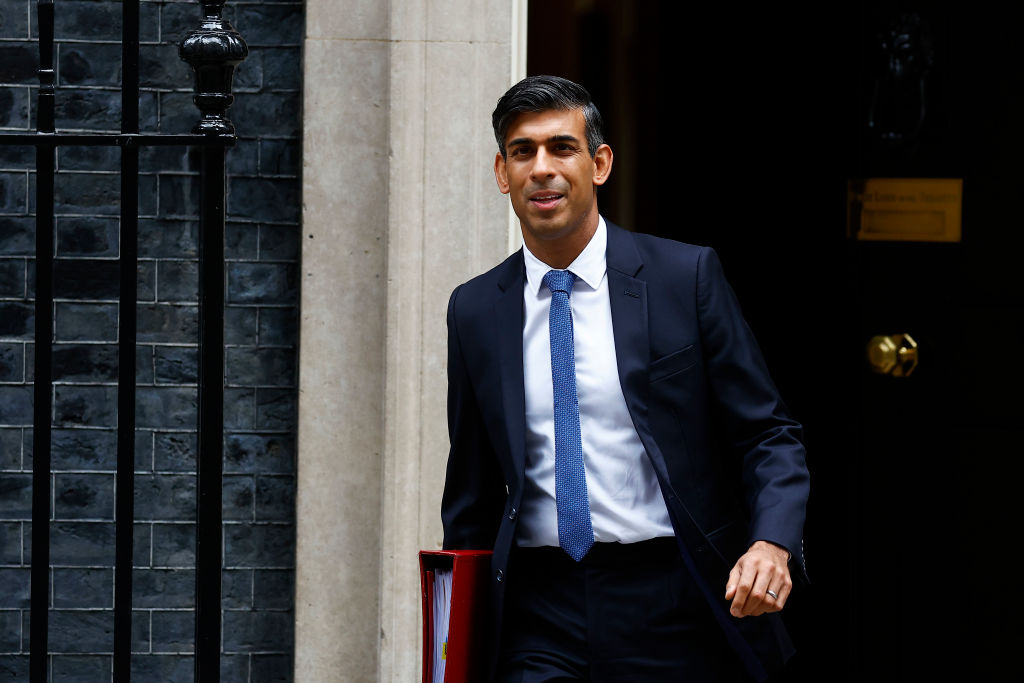National Insurance increase will be reversed in November, says chancellor
The UK government has ditched the 1.25 percentage-point National Insurance rise, which will see workers pocket more pay and reduce tax for UK businesses. Saloni Sardana explains what the changes means for you.


Get the latest financial news, insights and expert analysis from our award-winning MoneyWeek team, to help you understand what really matters when it comes to your finances.
You are now subscribed
Your newsletter sign-up was successful
Want to add more newsletters?

Twice daily
MoneyWeek
Get the latest financial news, insights and expert analysis from our award-winning MoneyWeek team, to help you understand what really matters when it comes to your finances.

Four times a week
Look After My Bills
Sign up to our free money-saving newsletter, filled with the latest news and expert advice to help you find the best tips and deals for managing your bills. Start saving today!
The 1.25% percentage-point increase in National Insurance contributions, introduced by former chancellor Rishi Sunak, will be reversed on 6 November, the government has confirmed.
The reversal was widely anticipated and follows on Liz Truss’ pledge to reduce the tax burden and promote economic growth.
The move was announced ahead of chancellor Kwasi Kwarteng’s mini-Budget on Friday (23 September).
MoneyWeek
Subscribe to MoneyWeek today and get your first six magazine issues absolutely FREE

Sign up to Money Morning
Don't miss the latest investment and personal finances news, market analysis, plus money-saving tips with our free twice-daily newsletter
Don't miss the latest investment and personal finances news, market analysis, plus money-saving tips with our free twice-daily newsletter
It will, according to the Treasury, mean almost 28 million people would keep an extra £135 of their pay on average in 2022-2023, and an extra £330 on average in 2023-2024. The higher your salary, the more you’ll benefit. For example, someone earning £100,000 would save £91 a month, but someone earning £27,000 would only save £15 a month.
Meanwhile, 920,000 businesses could save almost £10,000 on average next year in payments.
Speaking ahead of Friday‘s mini-Budget, Chancellor Kwasi Kwarteng, said: “Cutting tax is crucial to this – and whether businesses re-invest freed-up cash into new machinery, lower prices on shop floors or increased staff wages, the reversal of the levy will help them grow, whilst also allowing the British public to keep more of what they earn.”
The rise in National Insurance was made by former UK chancellor Rishi Sunak in April 2022 to fund health and social care services as the pandemic put a major hole in the Treasury’s finances.
However, the government will also cancel the planned health and social care levy, a separate tax which was expected to come into force April 2023 to replace this year’s National Insurance rise.
Funding for health and social care is now expected to be funded from general taxation.
The levy was expected to raise £13bn a year. Funding for healthcare and social care services will not change, according to the chancellor, ensuring the NHS remains protected through winter.
What is National Insurance?
National Insurance (NI) is a tax paid by employees and by the self-employed on their earnings, and by employers on their employees’ earnings.
It was introduced in 1911 to set up a fund for workers in need of medical treatment or for those who had lost their job. NI contributions do still count towards state pension eligibility, but it has effectively become a second tier of income tax.
The rate was due to return to 2021-2022 levels in April 2023.
The reversal is part of the current government’s pro-growth agenda, intended to foster greater innovation, provide more jobs, and ease the current cost-of-living crisis.
Also announced:
- 920,000 businesses will see a cut in NI bills, with 20,000 no longer paying NI due to the Employment Allowance, which rose in April 2022 from £4,000 to £5,000.
- Many small and medium-sized businesses (SMEs) will see cuts to their NI bills worth an average of £4,200 for small businesses and £21,700 for medium-sized firms who pay NI. The government estimates that 905,000 micro, small and medium-sized businesses will benefit from 2023-2024.
- Changes to NI thresholds in July 2022, which saw 2.2 million of the poorest people no longer having to pay NI, will be retained. The levy reversal and higher thresholds will result in average savings of more than £500 for 30 million people in 2023-2024.
- The chancellor is due to announce in Friday’s mini-Budget that a 1.25 percentage point increase to tax on dividends announced alongside the levy is due to be reversed in April 2023. The increase had been announced in April 2022. This is expected to generate savings of £345 a year for those who pay tax on dividends.
How will I save from the cut?
“The 1.25% reduction means that someone earning £50,000 a year would see an extra £40 in their pocket each month, equating to £467 extra annually. Whereas the average graduate earning £27,000 would see a miserly £15 extra a month or £180 a year,” said Shaun Moore, tax and financial planning expert at wealth manager Quilter.
He added that those who are earning £100,000 would see the biggest savings from the NI reversal, and would save £91 monthly or £1,092 annually.
Get the latest financial news, insights and expert analysis from our award-winning MoneyWeek team, to help you understand what really matters when it comes to your finances.
Saloni is a web writer for MoneyWeek focusing on personal finance and global financial markets. Her work has appeared in FTAdviser (part of the Financial Times), Business Insider and City A.M, among other publications. She holds a masters in international journalism from City, University of London.
Follow her on Twitter at @sardana_saloni
-
 Can mining stocks deliver golden gains?
Can mining stocks deliver golden gains?With gold and silver prices having outperformed the stock markets last year, mining stocks can be an effective, if volatile, means of gaining exposure
-
 8 ways the ‘sandwich generation’ can protect wealth
8 ways the ‘sandwich generation’ can protect wealthPeople squeezed between caring for ageing parents and adult children or younger grandchildren – known as the ‘sandwich generation’ – are at risk of neglecting their own financial planning. Here’s how to protect yourself and your loved ones’ wealth.
-
 Rishi Sunak: MoneyWeek Talks
Rishi Sunak: MoneyWeek TalksPodcast On the MoneyWeek Talks podcast, Rishi Sunak tells Kalpana Fitzpatrick that we need better numeracy skills to improve financial literacy and boost the economy.
-
 Is an inheritance tax (IHT) cut on the way?
Is an inheritance tax (IHT) cut on the way?Tax Talk that the government might cut or scrap inheritance tax in its Autumn Statement is rife. We look at how it could be reformed, and what difference it would make.
-
 Act now to bag NatWest-owned Ulster Bank's 5.2% easy access savings account
Act now to bag NatWest-owned Ulster Bank's 5.2% easy access savings accountUlster Bank is offering savers the chance to earn 5.2% on their cash savings, but you need to act fast as easy access rates are falling. We have all the details
-
 Moneybox raises market-leading cash ISA to 5%
Moneybox raises market-leading cash ISA to 5%Savings and investing app MoneyBox has boosted the rate on its cash ISA again, hiking it from 4.75% to 5% making it one of top rates. We have all the details.
-
 October NS&I Premium Bonds winners - check now to see what you won
October NS&I Premium Bonds winners - check now to see what you wonNS&I Premium Bonds holders can check now to see if they have won a prize this month. We explain how to check your premium bonds
-
 Government considering cuts to inheritance tax, reports say
Government considering cuts to inheritance tax, reports sayThe Sunday Times reported government officials are considering cuts to inheritance tax ahead of the general election.
-
 The best packaged bank accounts
The best packaged bank accountsAdvice Packaged bank accounts can offer great value with useful additional perks – but get it wrong and you could be out of pocket
-
 Bank of Baroda closes doors to UK retail banking
Bank of Baroda closes doors to UK retail bankingAfter almost 70 years of operating in the UK, one of India’s largest bank is shutting up shop in the UK retail banking market. We explain everything you need to know if you have savings or a current account with Bank of Baroda
